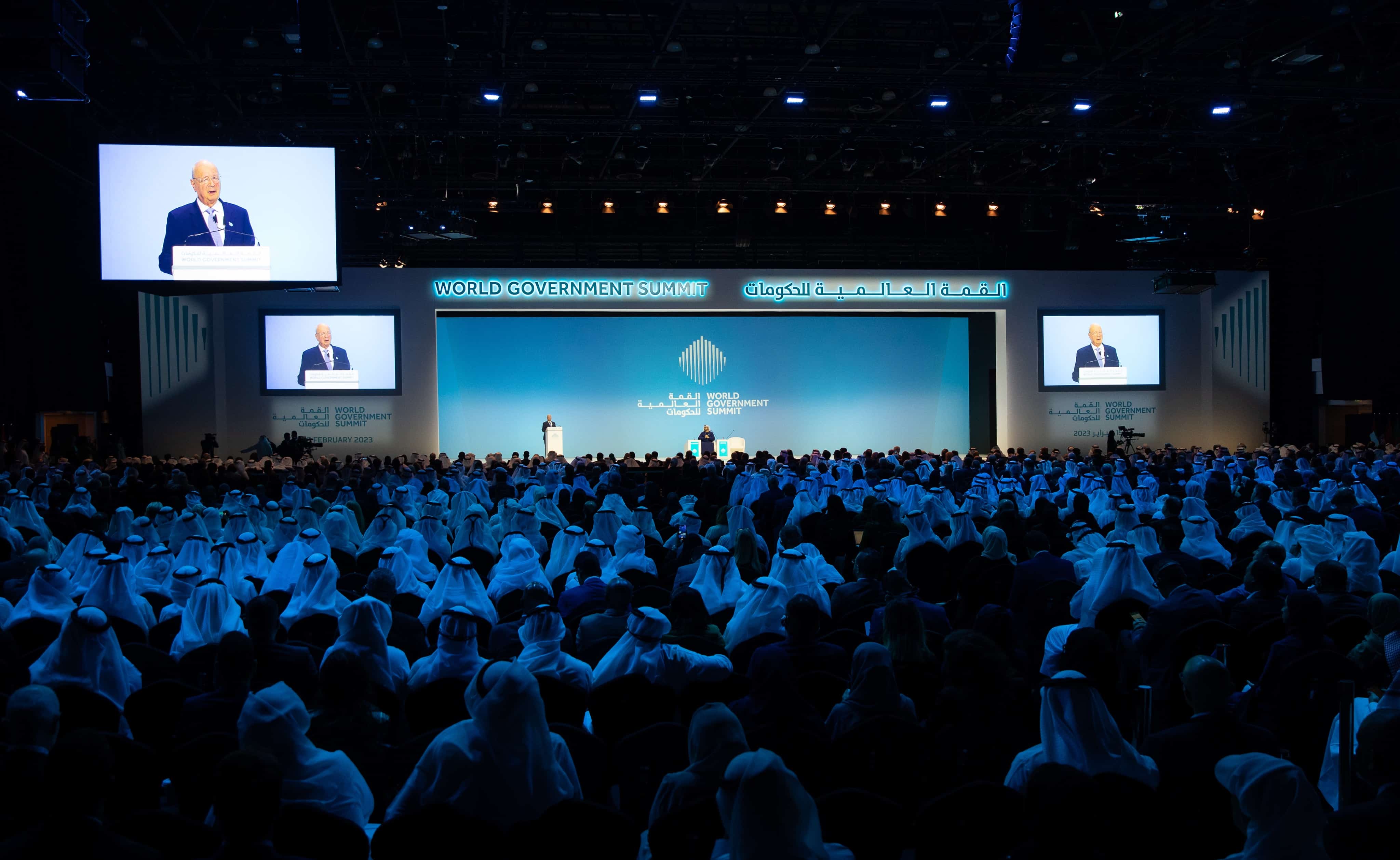DUBAI, UAE – There is an urgency to develop new mechanisms that strengthen international cooperation in today’s multipower world, said Klaus Schwab, Founder and President of the World Economic Forum (WEF) Davos, in his keynote speech at the World Government Summit (WGS) 2023.
Schwab also stressed the need for concerted efforts, in light of the humanitarian crisis the world is witnessing, to implement structural transformations within various strategic sectors, including the economy, technology and politics.
The WEF President commended WGS for its role in preparing for the future and keeping abreast of new technical developments in a world dominated by rapid changes.
“A few weeks ago, during the Davos conference, we discussed our ability to adapt to these global challenges, in light of various crises that require new mechanisms and innovative methods to help us reach a better future and serve the aspirations of humanity.”
He said technological transformation and the Fourth Industrial Revolution will impact the world for years to come. “Governments in different parts of the world should play leading roles in keeping pace with changes,” Schwab said.
Regarding structural transformations to be witnessed in various vital economic sectors, Schwab said there will be about 10 billion people in need of energy by 2050. He stressed on the need to achieve the goals of the Paris Agreement and reach zero carbon emissions.
Schwab pointed to the political changes taking place in the world, which are transforming the globe from a unipolar world to a multipolar world.
“This requires us to strengthen cooperation and enhance coordination at the level of governments, countries and institutions to maintain the frameworks of international cooperation, which in turn is reflected in the paths of development comprehensively,” he said.
Schwab said, “A few years ago, we considered some technologies a science fiction that was difficult to implement, but today it has become a reality that we live through artificial intelligence, new space technology, and industrial biology, which heralds a major change coming during the next 10 years, and requires governments to be ambitious in their decisions.”








